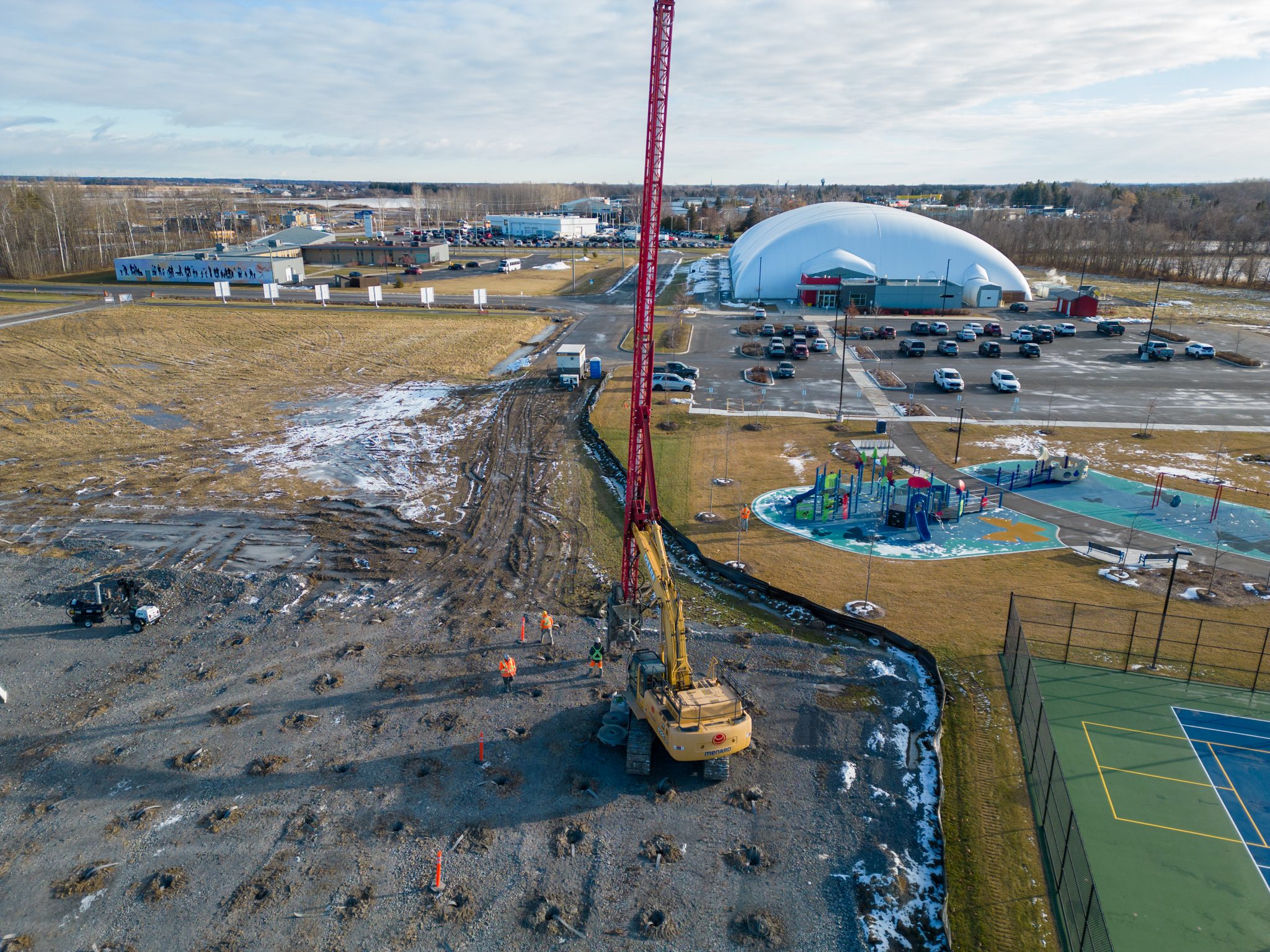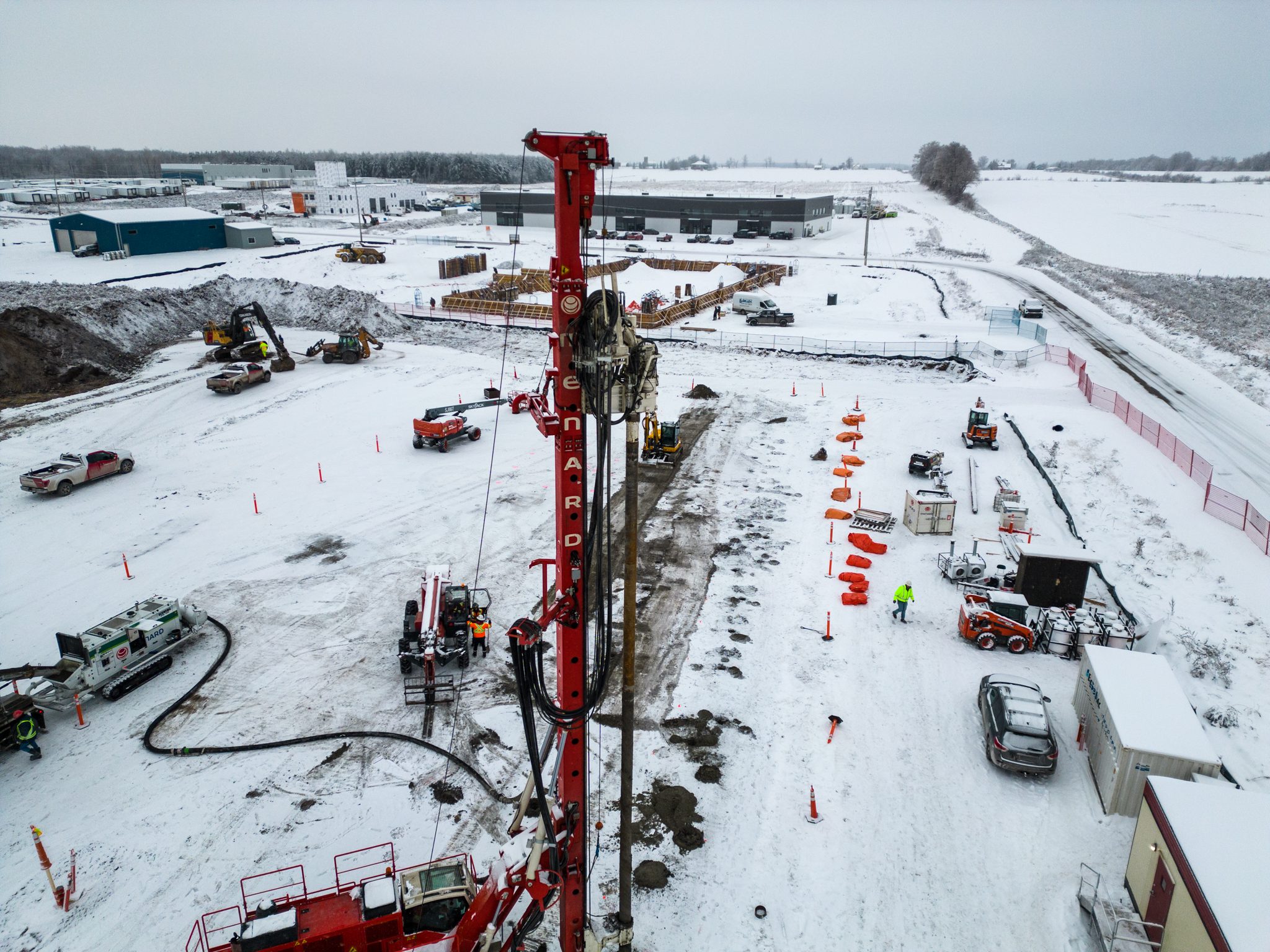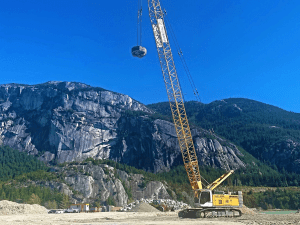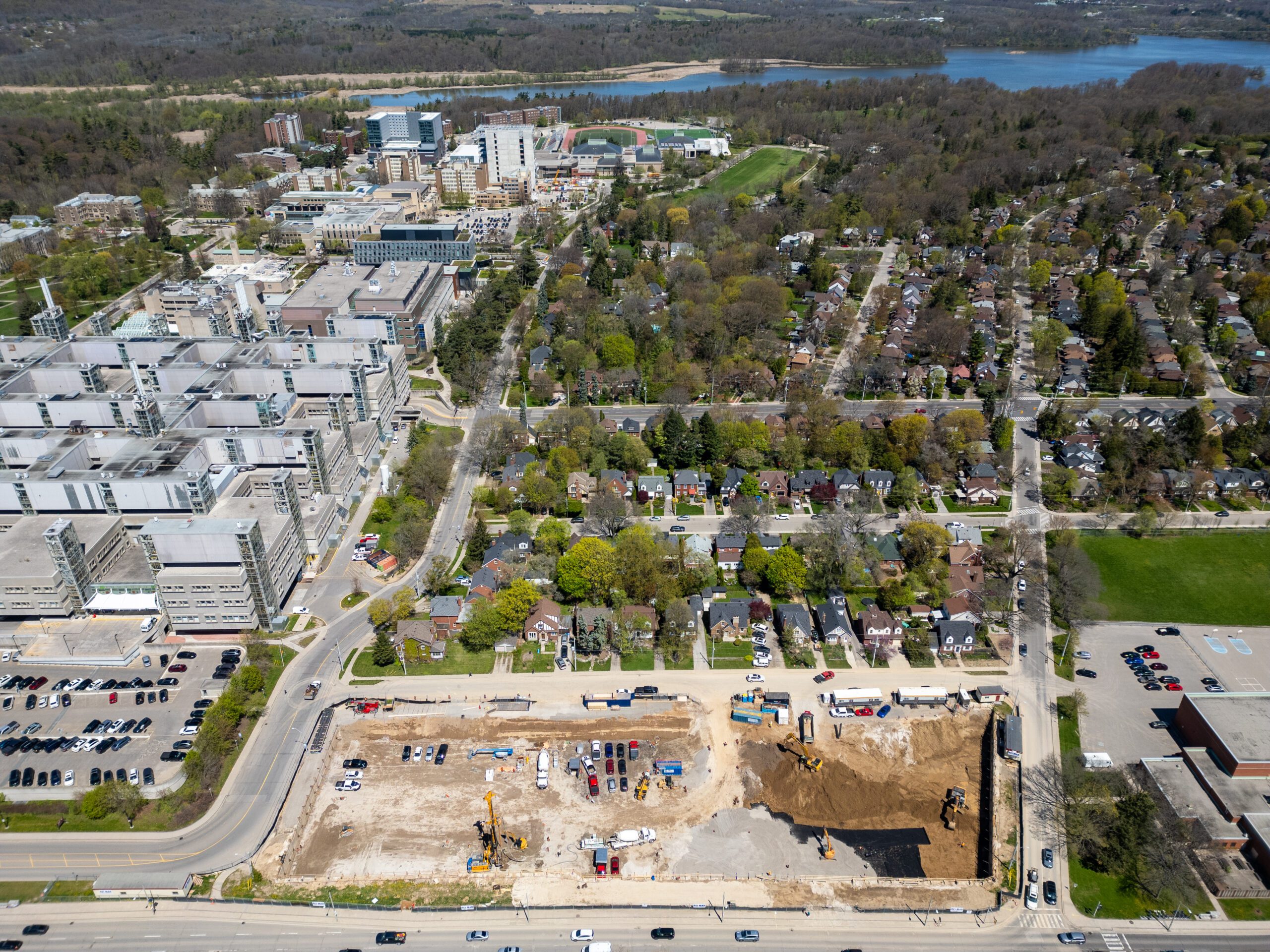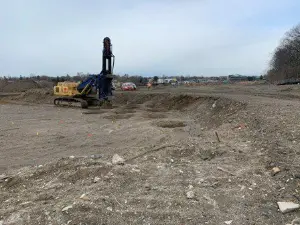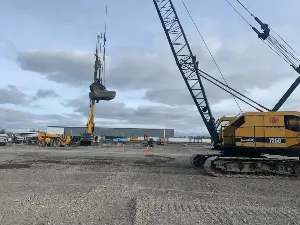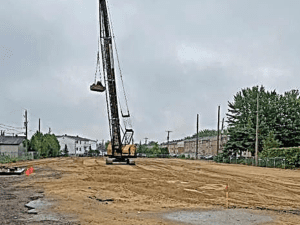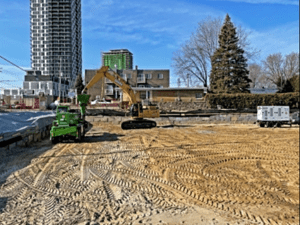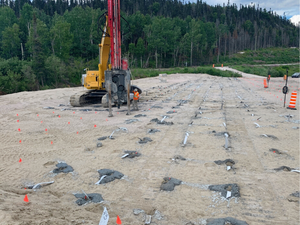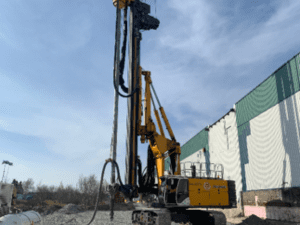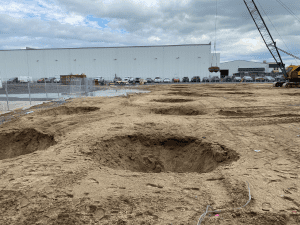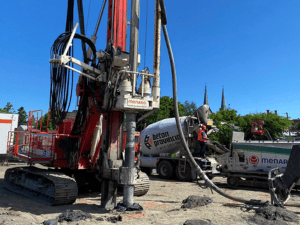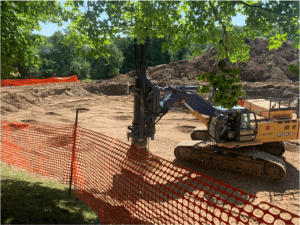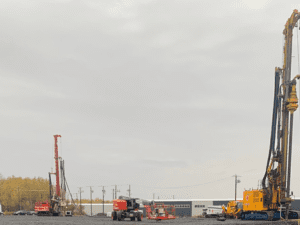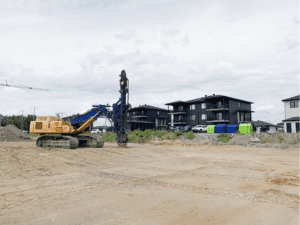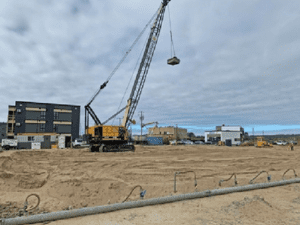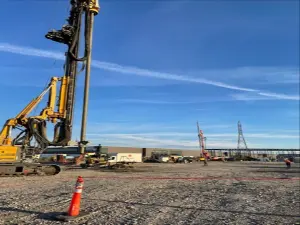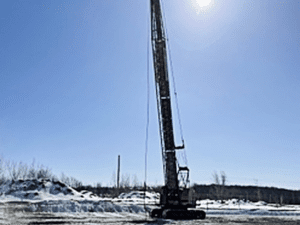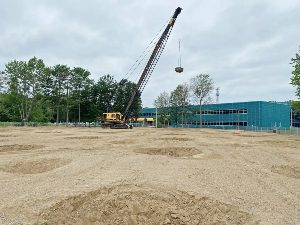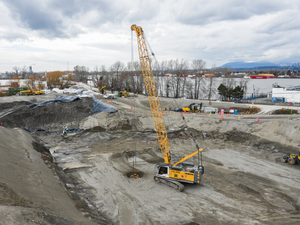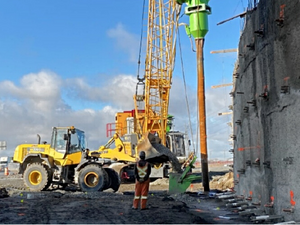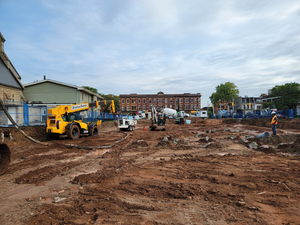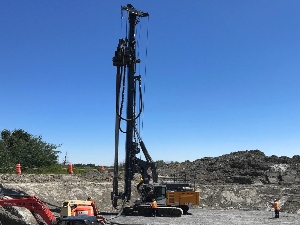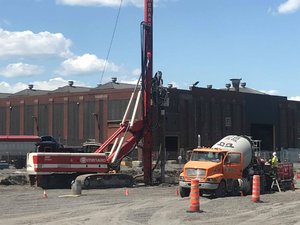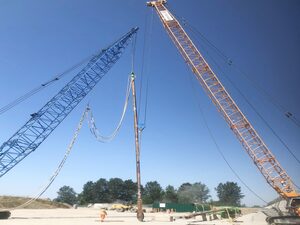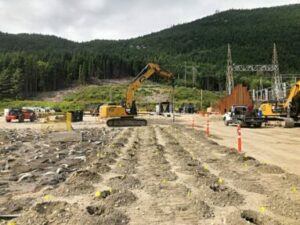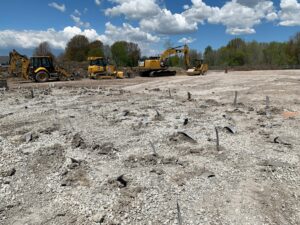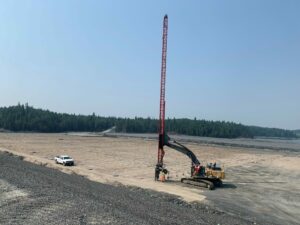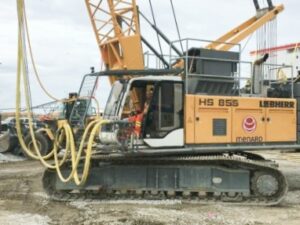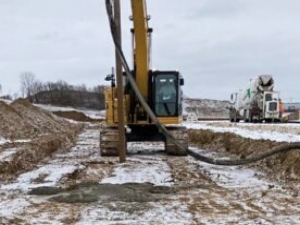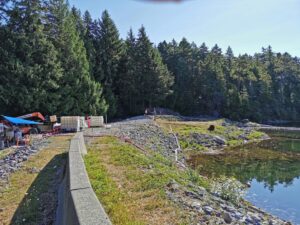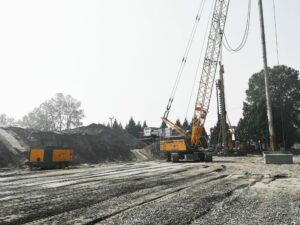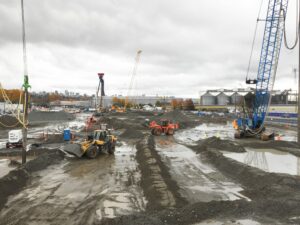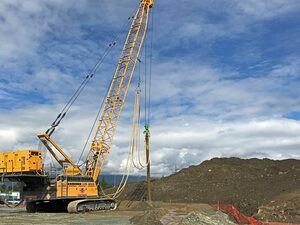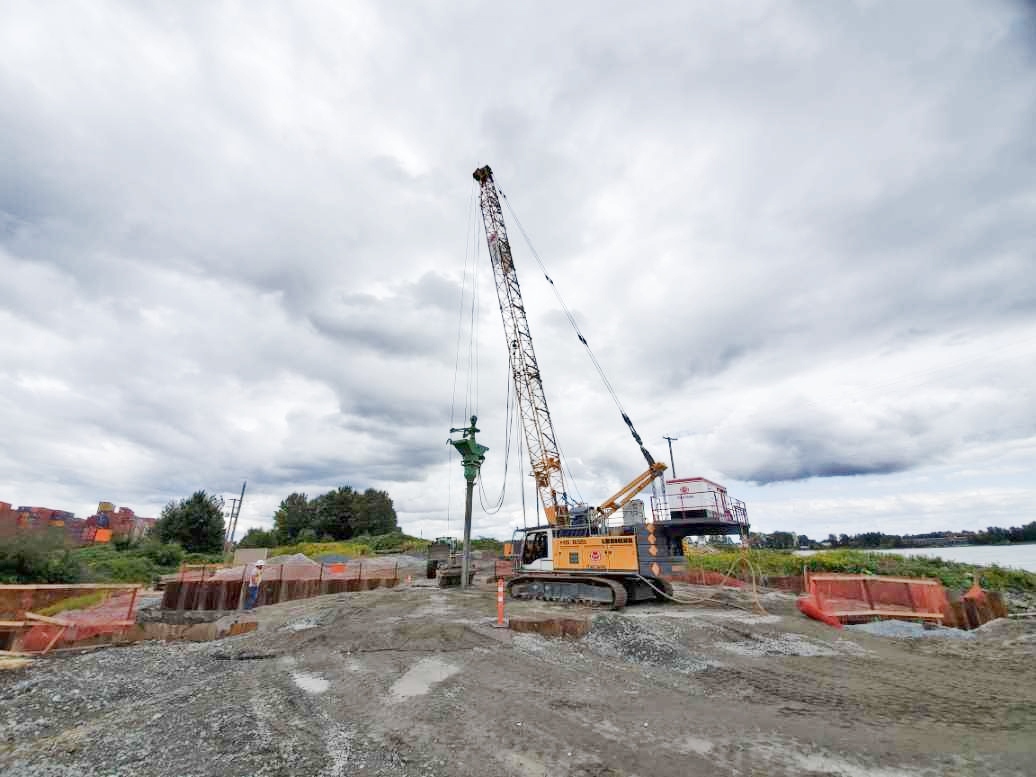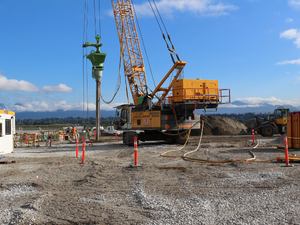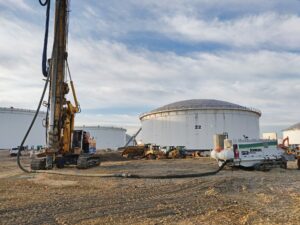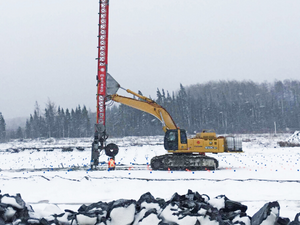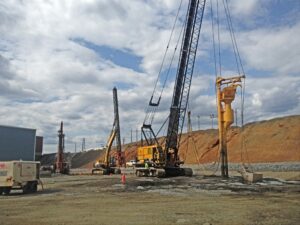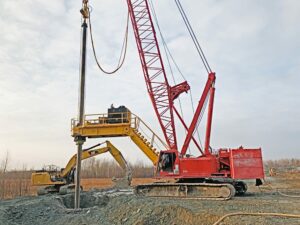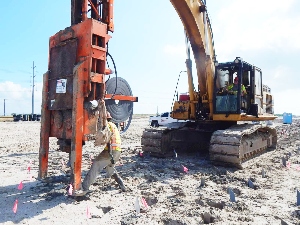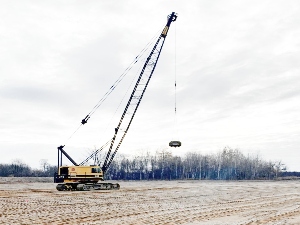Selected Technique:
Dynamic Compaction
Treatment Area:
11,106 m²
Maximum Depth:
6 m
Initially, Menard Canada started ground improvement works for the factory in 2015. Dynamic Compaction was used to increase the bearing capacity of the foundations during the construction of the buildings. The next few facility expansion projects, including a freezer, two production lines, storage section, were conducted in 2017-2022, following the same approach. This new 2023 expansion project with a surface area of 11,106 m2, uses Dynamic Compaction as well, to improve the nature of silty/clayey soils.

Ground Improvement was conducted, in Plessisville, Quebec
Ground Conditions
In the absence of geotechnical drilling on the 2023 and the following work portion, Menard Canada carried out a total of six Cone Penetration Test (CPT) drillings in the subsequent expansion portion and one investigative drilling in the 2023 expansion portion to verify that the soil profile did not differ from the other phases.
The soil profiles were as follows:
- Compact sand with a little silt up to approximately 2.5 m deep;
- A silt containing a little clay, with a little sand, to silty, very loose, up to depths varying from 4 to 5.5 m
- Compact sand with some silt until the end of drilling between 5.50m and 8.50m depth.
- The water table was discovered at a depth of 5.5m.p
Menard Canada Solution
After the soils were locally excavated, they were replaced with MG112 sand at the foundations and in a grid pattern under the slab. Dynamic compaction was carried out using a high-energy crawler crane in four phases. The drop height was adjusted close to the gas line.
The CPT tests made it possible to verify that the required bearing capacity of 150 kPa for the foundations and 25 kPa for the slab as well as differential and maximum settlements of 19mm and 25mm respectively.

